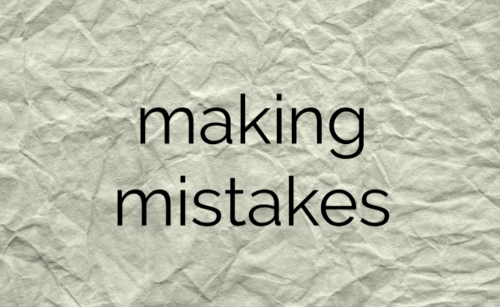
To do the work required of social justice is to know that you’re not perfect, can’t be perfect, and that part of the process is learning how to fall and get back up –with grace and fortitude.
At some point you or your organization is going to make a mistake. You’re going to say or do something that is offensive, that is microaggressive, harmful.
It’s inevitable, and it is NOT the end of the world.
So, here’s the question –how do we restore community when we have offended and hurt others?
Just thinking about that question makes most of us sweat. The thought of losing trust between groups, especially in this current social climate, is scary but more importantly it makes us/our organizations less from having shown up in ways that lack integrity.
The financial and social cost to breaking trust in relationships is immense.
Making mistakes can raise all sorts of emotional responses, which is why we need to prepare ourselves and our organizations ahead of time.
Below are some tips for how to respond when you mess up.
When you make a mistake:
- Resist the urge to have a knee jerk response, instead listen and seek to understand the other party
- Don’t let yourself dive into shame and blame mode, figure out how to take responsibility
- Apologize –without making it about you. So many folks miss the mark at this important step.
- Pinpoint the oversight or lack of understanding that led to your mistake, work to remedy that
- Share your learnings
When an organization makes a mistake:
- Listen –to lots of voices on all sides of the issue
- Take ownership, do not try to cover it up or downplay it
- Apologize without using boilerplate or legalese to talk about the mistake
- Work to mitigate the harm caused, and share your process publicly –transparency is what will allow you to rebuild trust or lack thereof to sink a relationship
- Pinpoint the oversight or lack of understanding that led to your mistake, work to remedy that on organizational levels
- Share how what you learned from the experience will hold the organization to a higher level of accountability –and outline the specifics of what that will look like
Take some time as a team to look at organizations and institutions that have messed up. Analyze the choices they made. Take the time and discuss what would have been a better approach.
We all have to learn how to hold each other accountable but also to forgive.
FYI: Next month we kick off the Social Justice Intensive, a three month deep dive for folks looking to level-up their knowledge base, their activism, their civic engagement. We’re going to explore issues of race and racism, sexism and heterosexism, and ability and ableism in depth. You can learn more about it here.
Let’s get free!
